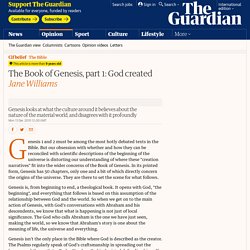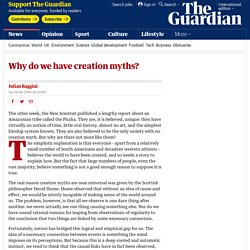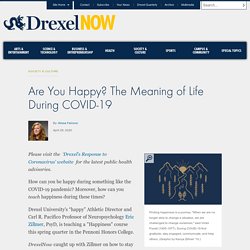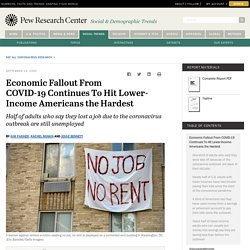

Not the flesh, but the Soul - Durdy Bayramov Art Foundation. The philosophy of Stoicism - Massimo Pigliucci. HuffPost is now a part of Verizon Media. HuffPost is part of Verizon Media.

We and our partners will store and/or access information on your device through the use of cookies and similar technologies, to display personalised ads and content, for ad and content measurement, audience insights and product development. Your personal data that may be used Information about your device and internet connection, including your IP address Browsing and search activity while using Verizon Media websites and apps Precise location Find out more about how we use your information in our Privacy Policy and Cookie Policy.
To enable Verizon Media and our partners to process your personal data select 'I agree', or select 'Manage settings' for more information and to manage your choices. The Book of Genesis, part 1: God created. Genesis 1 and 2 must be among the most hotly debated texts in the Bible.

But our obsession with whether and how they can be reconciled with scientific descriptions of the beginning of the universe is distorting our understanding of where these "creation narratives" fit into the wider concerns of the Book of Genesis. In its printed form, Genesis has 50 chapters, only one and a bit of which directly concern the origins of the universe. They are there to set the scene for what follows. Genesis is, from beginning to end, a theological book. Why do we have creation myths? The other week, the New Scientist published a lengthy report about an Amazonian tribe called the Piraha.

They are, it is believed, unique: they have virtually no notion of time, little oral history, almost no art, and the simplest kinship system known. They are also believed to be the only society with no creation myth. But why are there not more like them? How the Pandemic Has Impacted Employee Satisfaction. News.google. Are You Happy? The Meaning of Life During COVID-19. Finding happiness is a journey.

"When we are no longer able to change a situation, we are challenged to change ourselves," said Victor Frankl (1905-1977). During COVID-19 find gratitude, stay engaged, communicate, and help others. (Graphic by Kanya Zillmer '10.) Please visit the ‘Drexel’s Response to Coronavirus’ website for the latest public health advisories. How can you be happy during something like the COVID-19 pandemic? Drexel University’s “happy” Athletic Director and Carl R. DrexelNow caught up with Zillmer on how to stay happy during COVID-19.
Q: There are reports that over 45 percent of Americans feel that the coronavirus has negatively affected their mental well-being. A: Absolutely! The critical question is: What are you going to do about it? Research shows that some people may be “broken” by a crisis, while others emerge from stressful experiences even stronger than before. Q: How does one become more resilient? A: You have to focus on what you can control in your life. Measuring the impact of COVID-19 on job satisfaction and professional growth in nursing. Wolters Kluwer analyzed several recent surveys to learn how the COVID-19 pandemic has impacted both job satisfaction and professional growth in the nursing industry.

Nurses have endured the brunt of the COVID-19 pandemic, more so than any other segment of the workforce. The crisis has amplified their existing pressures, and it has introduced new industry and workplace uncertainties as well. These factors are disrupting consistent, year-over-year job satisfaction among nurses and driving them to look for new opportunities — some outside the profession entirely. Nurses, by nature, are not stagnant. They have an inherent desire to advance their profession. National Employment Monthly Update. Economic Fallout From COVID-19 Continues To Hit Lower-Income Americans the Hardest. Half of adults who say they lost a job due to the coronavirus outbreak are still unemployed By Kim Parker, Rachel Minkin and Jesse Bennett How we did this Pew Research Center conducted this study to understand Americans’ assessments of their personal financial situation during the current period of economic slowdown and high unemployment rates caused by the coronavirus outbreak.

For this analysis, we surveyed 13,200 U.S. adults in August 2020. Everyone who took part is a member of Pew Research Center’s American Trends Panel (ATP), an online survey panel that is recruited through national, random sampling of residential addresses. See here to read more about the questions used for this report and the report’s methodology. Terminology References to White, Black and Asian adults include only those who are not Hispanic and identify as only one race. References to college graduates or people with a college degree comprise those with a bachelor’s degree or more. Ranked: The 20 Happiest Countries In The World. 7 ways to feel happier during the coronavirus pandemic.
Americans are the unhappiest they've been in 50 years, according to the COVID Response Tracking Study, conducted in late-May by NORC at the University of Chicago.

Only 14% of respondents said they were very happy, down 31% from the same period in 2018. During such painful times, the idea of cultivating personal happiness might seem trivial — selfish, even — but it might just be more important now than ever before. Download the TODAY app for the latest coverage on the coronavirus outbreak “All of this negative energy taxes the mind, body and spirit,” says Carla Marie Manly, a clinical psychologist and author of “Joy From Fear: Create The Life Of Your Dreams By Making Fear Your Friend.” “As such, it’s vital to intentionally counteract this toxic, fearful energy with a conscientious investment in creating happiness.” But how does one actually boost happiness during a global pandemic? Double down on physical self-care — especially exercise.